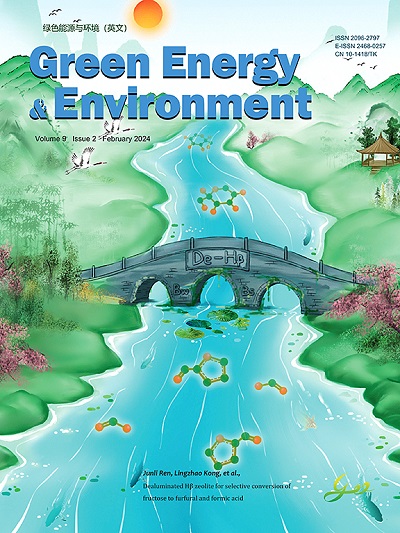通过脱氧生物质脂肪酸生产柴油样碳氢化合物的困境和策略
IF 10.7
1区 工程技术
Q1 CHEMISTRY, PHYSICAL
引用次数: 0
摘要
由于化石燃料的枯竭和对环境的担忧,生物质增值以生产生物燃料已成为一个备受研究的领域。其中,从生物质和城市污泥有机物中提取脂肪酸或酯类进行脱氧反应以生产柴油类碳氢化合物的研究已成为热门话题。脂肪酸是酯类水解产生的一种关键中间体,因此作为一种模型化合物受到更多关注。在本综述中,我们首先介绍并比较了脂肪酸和酯脱氧的三种反应途径:加氢脱氧、脱羧和脱羰基。反应途径的选择与原料和催化剂的类型以及反应条件密切相关。本综述的特别目的是总结脂肪酸脱氧的困境和可能的策略,以期为未来的探索和浓缩提供指导。原子的利用率和长时间反应的稳定性是商业经济最重要的指标。在此,我们提出合理设计和精细合成稳定的单原子非贵金属催化剂可能是最佳解决方案。最终目标是开发可持续生产的绿色柴油烃。本文章由计算机程序翻译,如有差异,请以英文原文为准。
Dilemma and strategies for production of diesel-like hydrocarbons by deoxygenation of biomass-derived fatty acids
The valorization of biomass to produce biofuels has become a heavily investigated field due to the depletion of fossil fuels and environmental concerns. Among them, the research on deoxygenation of fatty acids or esters derived from biomass as well as municipal sludge organics to produce diesel-like hydrocarbons has become a hot topic. Fatty acid is a key intermediate derived from ester hydrolysis, therefore has attracted more attention as a model compound. In this review, we first introduce and compare the three reaction pathways of hydrodeoxygenation, decarboxylation and decarbonylation, for the deoxygenation of fatty acids and esters. The preference of reaction pathway is closely related to the type of raw materials and catalysts as well as reaction conditions. The special purpose of this review is to summarize the dilemma and possible strategies for deoxygenation of fatty acids, which is expected to provide guidance for future exploration and concentrates. The atom utilization along with stability during reaction in a long time is the most important index for commercial economy. Herein, we propose that the rational design and delicate synthesis of stable single-atom non-noble catalysts may be the best solution. The ultimately goal is aiming to develop sustainable production of green diesel hydrocarbons.
求助全文
通过发布文献求助,成功后即可免费获取论文全文。
去求助
来源期刊

Green Energy & Environment
Energy-Renewable Energy, Sustainability and the Environment
CiteScore
16.80
自引率
3.80%
发文量
332
审稿时长
12 days
期刊介绍:
Green Energy & Environment (GEE) is an internationally recognized journal that undergoes a rigorous peer-review process. It focuses on interdisciplinary research related to green energy and the environment, covering a wide range of topics including biofuel and bioenergy, energy storage and networks, catalysis for sustainable processes, and materials for energy and the environment. GEE has a broad scope and encourages the submission of original and innovative research in both fundamental and engineering fields. Additionally, GEE serves as a platform for discussions, summaries, reviews, and previews of the impact of green energy on the eco-environment.
 求助内容:
求助内容: 应助结果提醒方式:
应助结果提醒方式:


